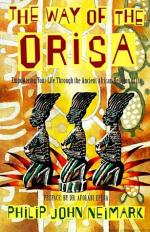|
This section contains 7,832 words (approx. 27 pages at 300 words per page) |

|
In his The Invention of Africa (1988) the Congolese philosopher Valentin Mudimbe noted that there is a remarkable continuity in the Western representation of Africa as a place without history and without religion. These images, he argued, played a central role in the legitimization of the Atlantic slave trade and colonization. From Herodotos (c. 484–between 430 and 420 BCE) to contemporary commentators on world civilizations, these descriptions reemerge in ways that consistently marginalize Africa from the scientific study of world religions. Religious studies scholars continue to think of their departments as focused on Western religions and Eastern religions. A residual category that includes African, Native American, Australasian, and so on—until recently labeled as primitive but since replaced by more palatable terms such as primal, oral, tribal, traditional, or indigenous—remains outside this catholic division and is usually left to anthropologists and rarely included in religious studies...
|
This section contains 7,832 words (approx. 27 pages at 300 words per page) |

|



